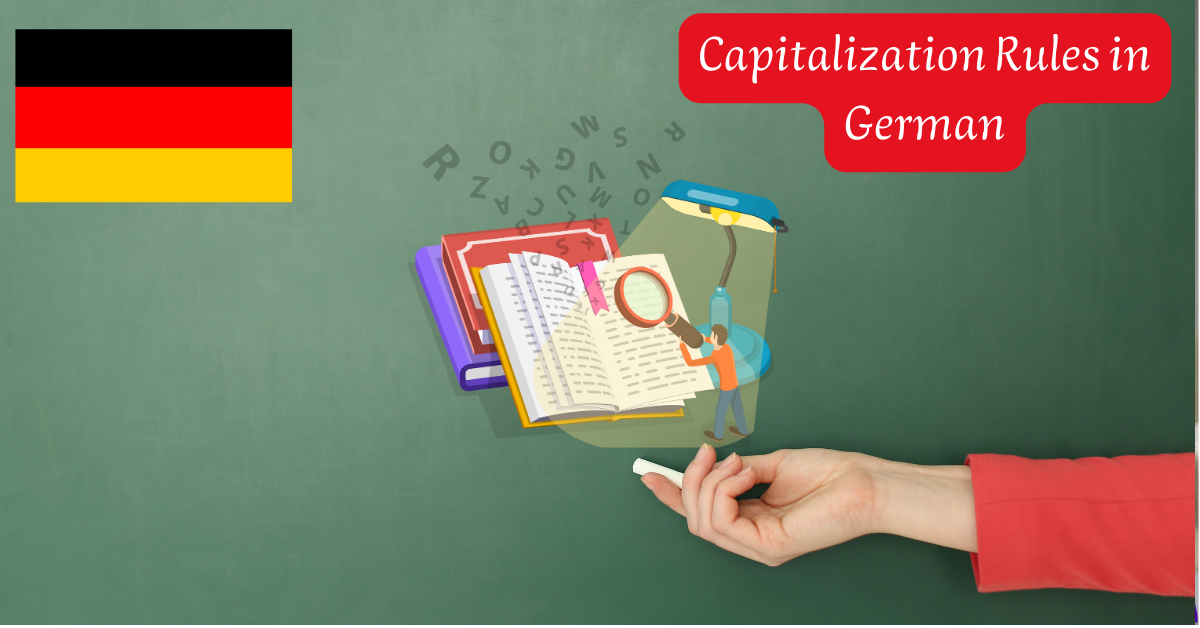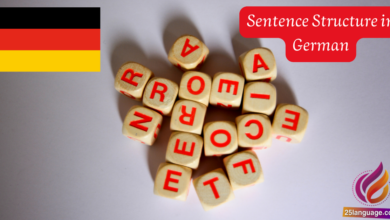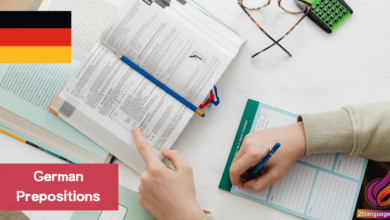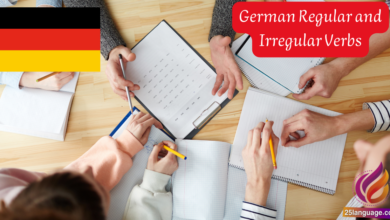Essential Capitalization Rules in German

Mastering the German language involves navigating a unique set of rules,and one of the most distinctive features is the art of capitalization. Unlike English, German employs capitalization not just for proper nouns but also for all nouns, which adds an extra layer of excitement to your learning journey. Understanding these capitalization rules will not only enhance your writing but also deepen your appreciation of the languageS structure and elegance.Let’s dive in and unlock the secrets!
Understanding the Essentials of German Capitalization
In German, capitalization plays a crucial role in grammar and meaning.Different parts of speech have specific rules regarding capitalization. The most notable rules include:
- All nouns are always capitalized, regardless of their position in a sentence. Such as, das Haus (the house) and die Katze (the cat) are both capitalized.
- The formal ‘you’ pronoun ‘Sie’ is also capitalized, emphasizing respect in conversation. For instance, wie geht es Ihnen? (How are you?) retains the uppercase ‘I’ in ‘Ihnen’.
- Days of the week, months, and holidays are capitalized, such as Montag (Monday) and Weihnachten (Christmas).
Adjectives preceding titles and certain expressions may be capitalized. Such as, in die Alte Garde (the old Guard), the adjective ‘altes’ is capitalized due to its presence in a proper noun context. it’s crucial to maintain consistent capitalization to ensure clarity and understanding in written German. The following table highlights some key rules and examples:
| German Example | Rule | English Translation |
|---|---|---|
| Die Katze sitzt auf dem Tisch. | Nouns are capitalized. | The cat is sitting on the table. |
| Sie sind sehr nett. | Formal ‘you’ is capitalized. | You are very nice. |
| Ich arbeite im Januar. | Months are capitalized. | I work in January. |
| Frohe Weihnachten! | Holidays are capitalized. | Merry Christmas! |
Mastering the Art of Capitalization in german Language
In German, capitalization is an essential aspect of grammar, and it differs considerably from English.Understanding when to capitalize words can greatly enhance your writing and interaction skills. The following are key rules for capitalization in German:
- Nouns: All German nouns are capitalized, regardless of their position in a sentence. For example, “Der Buch liegt auf dem Tisch.” translates to “The book is on the table.”
- Proper Nouns: Similar to English, proper nouns, including names of people, places, and organizations, are capitalized. As an example, “Ich wohne in Berlin.” means “I live in Berlin.”
furthermore, there are specific instances where adjectives used as nouns are also capitalized. This occurs primarily when they refer to a general group of people. For example, “Die Schönen kommen zur party.” translates to “The Gorgeous are coming to the party.” Additionally, the first word of every sentence is always capitalized, which aligns with English grammar rules. Below is a table summarizing these rules:
| German example | Rule | English Translation |
|---|---|---|
| Die Katze schläft. | All nouns are capitalized. | The cat is sleeping. |
| Ich liebe Frankreich. | Proper nouns are capitalized. | I love France. |
| Die Älteren verstehen mich nicht. | Adjectives used as nouns are capitalized. | The older ones do not understand me. |
Practical Guidelines for Effective Capitalization in German
In German, capitalization is critical and follows specific rules that differ from English. The essential rule is that all nouns must be capitalized. This rule is imperative for clarity in the language since nouns represent the subject of sentences. Here are key points to remember:
- All nouns (e.g., der Tisch – the table, die Katze - the cat) must begin with a capital letter.
- Proper nouns like names of people (Maria), countries (Deutschland - Germany), and cities (Berlin) are also always capitalized.
- Some adjectives derived from proper nouns may also be capitalized, such as deutsche in deutsche Sprache – German language when referring specifically to the German language; however, the adjective generally remains lowercase.
Moreover, all nouns in titles or headings are capitalized, regardless of their grammatical function in the sentence.this is an essential rule to follow in written German, further illustrated by the following examples:
| German Example | Rule | English Translation |
|---|---|---|
| Die Sonne</strong scheint. | Noun capitalization | The sun is shining. |
| Ich liebe Schokolade. | Proper noun capitalization | I love chocolate. |
| Berlin liegt in Deutschland. | Capitalization of proper nouns | Berlin is located in Germany. |
Exploring German Capitalization: Rules, Examples, and Tips
In german, capitalization is not just a stylistic choice; it is indeed a fundamental aspect of the language that distinguishes nouns from other parts of speech. Every noun in German, regardless of its position in a sentence, must begin with a capital letter. This includes not only common nouns like Hund (dog) and Buch (book), but also abstract nouns like Freiheit (freedom) and Liebe (love). Furthermore, all proper nouns, which refer to specific names, such as Deutschland (Germany) and Angela Merkel, must also be capitalized. The rules for capitalization can be summarized as follows:
- all nouns are capitalized.
- Proper nouns are capitalized.
- Titles of individuals, books, and organizations are capitalized.
In addition to nouns, certain other words are also capitalized in specific contexts. The formal forms of “you” (Sie, Ihr, etc.) are always capitalized to show respect, as in the phrase wie geht es Ihnen? (How are you?), and the first word of every sentence is capitalized. Days of the week, months, and seasons, however, are not capitalized unless they begin a sentence: Der Montag ist wichtig. (Monday is important.). Below is a table summarizing some key rules and examples:
| German Example | Rule | english Translation |
|---|---|---|
| Der Hund spielt. | All nouns are capitalized. | The dog is playing. |
| Ich liebe die Freiheit. | Abstract nouns are capitalized. | I love freedom. |
| Wie geht es Ihnen? | Formal ‘you’ is capitalized. | How are you? |
| Der Januar ist kalt. | Months are not capitalized except at the start. | January is cold. |
To Conclude
Abschluss der Lektion: „Deutsche Großschreibung“
Herzlichen Glückwunsch! Sie haben nun die grundlegenden Regeln der deutschen Großschreibung kennengelernt. Diese Lektion hat Ihnen gezeigt, dass im Deutschen Nomen, Anredeformen, das erste Wort eines Satzes sowie bestimmte Feiertage und Buchtitel mit einem Großbuchstaben beginnen. Dies mag anfangs herausfordernd erscheinen,aber mit Übung werden Sie schnell sicherer im Umgang mit diesen Regeln.
Denken Sie daran,dass das richtige Anwenden der Großschreibung nicht nur Ihre Schreibfähigkeiten verbessert,sondern auch Ihre Fähigkeit,auf Deutsch klar zu kommunizieren. Also, greifen Sie zu einem Stift oder einer Tastatur und setzen Sie das Gelernte in die Praxis um! Schreiben Sie kurze Texte oder Notizen und achten Sie dabei besonders auf die Großschreibung.
Zögert nicht, Fragen zu stellen oder weiter zu üben, denn jeder Schritt bringt Sie Ihrem Ziel näher, die deutsche Sprache zu meistern.Sie sind auf einem großartigen Weg, und wir sind stolz auf Ihren Fortschritt! Viel Spaß beim Üben und Entdecken der deutschen Sprache!





























